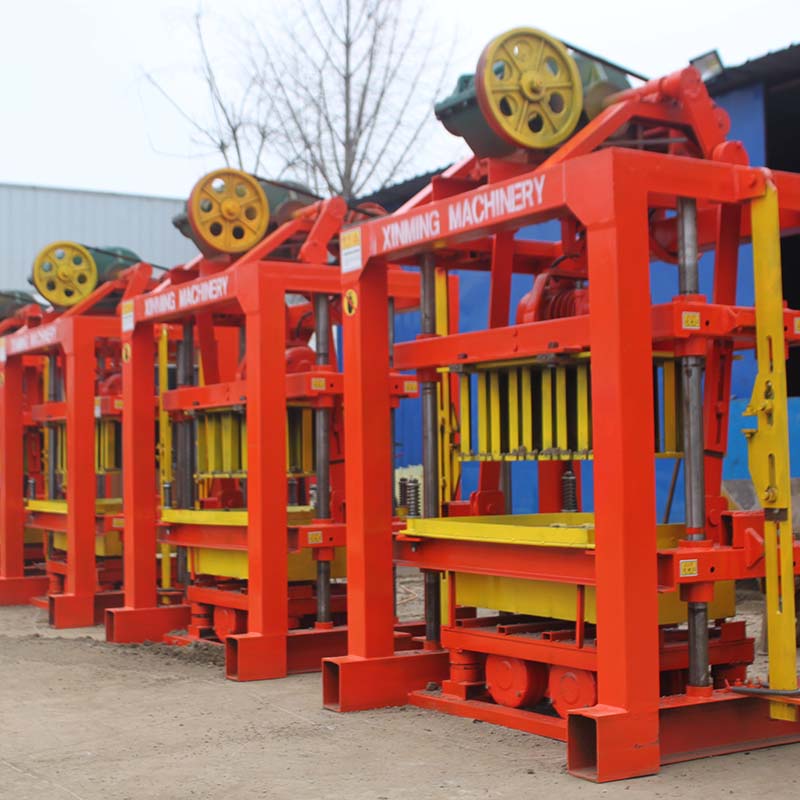
The construction industry has undergone significant transformations over the years, with technological advancements continually reshaping the way we build.
Among these innovations, modern block making machines stand out as game-changers, revolutionizing the construction process through enhanced efficiency and precision.
These machines have the power to produce high-quality building blocks with unparalleled accuracy, streamlining construction timelines and reducing costs.
This essay delves into the profound impact of modern block making machines on the construction industry, exploring their role in speeding up construction, ensuring precision, optimizing resource usage, and fostering sustainability.
Speeding Up Construction: The Rapid Production Advantage
Time is of the essence in the construction industry, where delays can lead to increased costs and missed opportunities.
Modern block making machines have proven to be instrumental in accelerating construction timelines, thanks to their rapid production capabilities.
Unlike traditional brickmaking methods that rely on manual labor, block making machines automate the process of producing building blocks. These machines can churn out a large number of standardized blocks within a short period, significantly reducing the time required to manufacture the essential building materials.
With the ability to produce blocks at high speeds, construction projects can progress rapidly.
Whether it’s erecting walls, constructing commercial buildings, or working on large infrastructure projects, the efficiency of modern block making machines ensures that construction teams can complete their tasks in record time.
Ensuring Precision: Uniformity and Consistency
The success of any construction project hinges on precision and uniformity in building materials.
Traditional bricklaying methods often lead to variations in brick size and shape, resulting in challenges during construction and affecting the overall structural integrity of the building.
Modern block making machines, however, eliminate such concerns by producing blocks with consistent dimensions and shapes.
The automated production process ensures that each block is uniform, contributing to smoother and more precise construction.
This precision extends beyond individual blocks to the overall building structure.
The uniformity of the blocks allows for easier alignment and assembly, reducing the need for time-consuming adjustments during construction.
As a result, modern block making machines facilitate the creation of buildings with higher structural integrity and better overall aesthetics.
Optimizing Resource Usage: Sustainable Construction Practices
As global awareness of environmental sustainability grows, the construction industry is under increasing pressure to optimize resource usage and minimize waste.
Modern block making machines play a crucial role in this endeavor by promoting sustainable construction practices.
These machines allow for precise control over the composition of building blocks, ensuring minimal material wastage.
With accurate measurements and consistent production, construction teams can better calculate the required number of blocks, reducing excess materials and cutting down on costs.
Furthermore, some modern block making machines can utilize alternative materials, such as fly ash, which is a byproduct of coal combustion, or recycled concrete.
Incorporating such eco-friendly materials not only reduces the demand for new resources but also lessens the environmental impact of construction.
By embracing resource optimization and sustainable practices, modern block making machines are paving the way for a greener and more responsible construction industry.
Fostering Sustainability: Energy Efficiency and Reduced Emissions
Sustainability in construction extends beyond resource optimization to encompass energy efficiency and reduced emissions.
Modern block making machines are designed with these principles in mind, incorporating features that contribute to a more sustainable construction process.
Some advanced block making machines are engineered to be energy-efficient, reducing electricity consumption during the manufacturing process. Additionally, the use of renewable energy sources, such as solar power, further minimizes the environmental footprint of block production.
Moreover, the blocks produced by modern machines often possess superior thermal and insulating properties, improving the energy efficiency of buildings.
This enhanced insulation reduces the need for energy-intensive heating and cooling systems, leading to reduced greenhouse gas emissions over the lifetime of the structure.
Modern block making machines have emerged as transformative tools in the construction industry, harnessing efficiency and precision to revolutionize the building process.
By speeding up construction timelines and ensuring precision through uniform and consistent block production, these machines have become indispensable assets to construction companies worldwide.
Moreover, modern block making machines contribute to sustainability by optimizing resource usage, incorporating eco-friendly materials, and promoting energy efficiency.
As the demand for environmentally responsible practices in construction continues to grow, these machines play a vital role in meeting the industry’s sustainability goals.
By embracing the power of modern block making machines, the construction industry can achieve higher levels of efficiency, precision, and sustainability.
The impact of these machines extends far beyond the construction site, as they contribute to a more sustainable and resilient built environment for future generations.
As we look to build a brighter and more sustainable future, the efficiency and precision unleashed by modern block making machines remain at the forefront of construction innovation.
